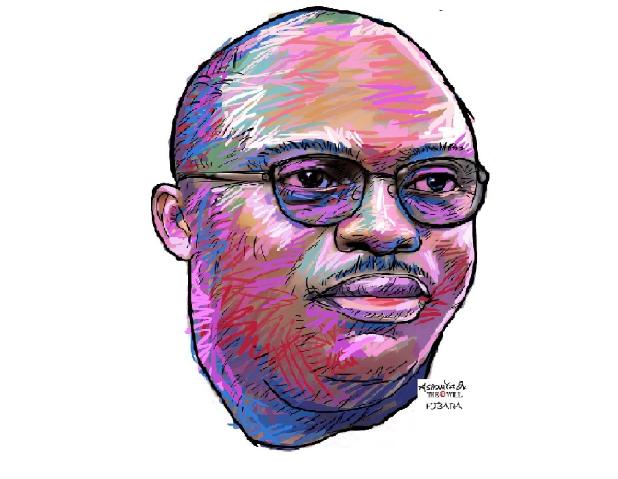Home Business Foreign Investment: Rivers Records Highest Inflow Under Gov Fubara
Foreign Investment: Rivers Records Highest Inflow Under Gov Fubara

Rivers State, South-south Nigeria, recorded $6 million investment inflow in the fourth quarter (Q4) of 2023, according to the National Bureau of Statistics (NBS).
The inflow, which occurred under Governor Siminalayi Fubara, was the highest among the/ sub-nationals, after Lagos and the Federal Capital Territory (FTC), and in the state’s records based on available data.
The NBS in its latest ‘Nigeria Capital Importation – Q4 2023 ’ report released on Friday, revealed that aside from Lagos ($711.68 million), FCT ($370.80), Rivers ($6 million) and Ekiti ($0.01 million), no other state attracted foreign investment during the period.
Gov. Fubara assumed the leadership of Rivers on May 29, 2023 following the completion of the constitutionally allowed two-term of eight years by his predecessor, Nyesom Wike, now minister of FCT.
The investment inflow drought among the states has been a source of concern to stakeholders in particular, and the Nigerian citizens in general, as it points to lack of strong developmental pace, especially among the oil and gas producing areas.
It also has implications for job creation and the states’ employment and unemployment status which impact on the quality of living, misery index, inflation and other economic indices in the areas.
Industry experts say the remarkable capital importation for Rivers signals a new phase of developmental activities as the oil-rich state battles several socio-economic challenges that discourage investors from looking the way of the state.
They urge the administration of Gov. Fubara to take advantage of the trend to advance the development of the state which lags in the areas of human capital, rural development, agriculture and industrialisation.
The NBS said in its recent report that total capital importation into Nigeria in Q4 2023, stood at US$1,088 billion, slightly higher than US$1,068 billion recorded in Q4 2022, indicating an increase of 2.62 per cent. In comparison to the preceding quarter, capital importation rose by 66.27 per cent from US$654.65 million in Q3 2023.
The report added that ‘Other Investment’ (made up of loans) ranked top accounting for 54.64 per cent (US$594.74 million) of total capital importation in Q4 2023, followed by ‘Portfolio Investment’ with 28.46 per cent (US$309.76 million) and ‘Foreign Direct Investment (FDI)’ with 16.90 per cent (US$183.97 million).
Impressively, the production/manufacturing sector recorded the highest inflow with US$450.11 million, representing 41.35 per cent of total capital imported in Q4 2023, followed by the banking sector, valued at US$283.30 million (26.03 per cent), and financing with US$135.59 million (12.46 per cent).
Capital Importation during the reference period originated largely from the United Kingdom with US$267.24 million, and recorded 24.55 per cent share. This was followed by Mauritius with US$226.18 million (20.78 per cent) and the Netherlands with US$149.93 million (13.77 per cent).
“Lagos state remained the top destination in Q4 2023 with US$771.68 million, accounting for 65.38 per cent of total capital importation, followed by Abuja (FCT) with US$370.80 million (34.07 per cent) and Rivers state with US$6.00 million (0.55 per cent),” the report stated.
By banks (as investment channels), Stanbic IBTC Bank Plc received the highest capital importation into Nigeria in Q4 2023 with US$499.45 million (45.88 per cent), followed by Citibank Nigeria Limited with US$229.06 million (21.04 per cent) and Rand Merchant Bank Plc with US$85.85 (7.89 per cent).
THEWILL had reported that despite housing the largest natural gas reserves and significant crude oil deposits in Nigeria, Imo state, in the South-east region, attracted zero foreign investment in four years, between 2020 and 2023, according to data by the NBS) .
The statistics bureau in its quarterly Capital Importation reports showed that, after recording the sum of $3 million in 2019, Imo had no dime to its name by way of investment inflow to the state economy during the reference period.
The reports further revealed that Imo was the only oil-producing state in the South-east region that attracted no foreign investment for the four years under review, unlike its two counterparts – Anambra and Abia states which achieved a total of $51.48 million and $210.12 million, respectively.
Abia state attracted the highest foreign investment within four months of Dr Alex Otti as governor. Dr Otti was inaugurated on May 29, 2023 as the 4th governor of the 32-year-old subnational since the return to democracy in 1999.
This actuality emerged from the Capital Importation Report of the National Bureau of Statistics (NBS) for the third quarter (Q3) of 2023.
Although Abia is among the few Nigerian states that attract foreign investment to their economies on a fairly regular basis, the state never attracted capital inflow to the tune of $150.09 million within three months, as was the case in Q3 2023.
By that outstanding feat, Abia came third after Lagos and the Federal Capital Territory (FTC) Abuja in capital importation destinations during Q3 2023.
https://thewillnews.com/foreign-investment-rivers-records-highest-inflow-under-gov-fubara/
